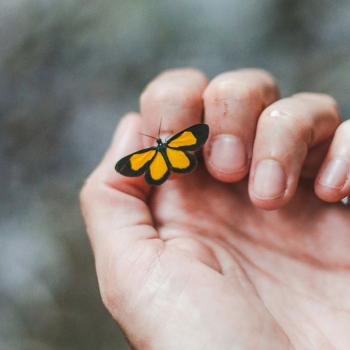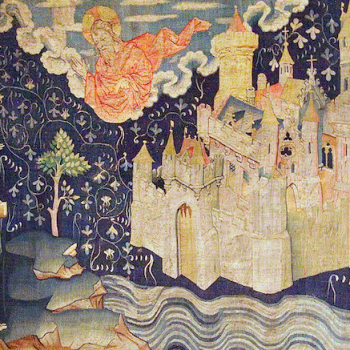Muslims believe that all generations will be gathered together at the Last Judgment and that in heaven the saved will enjoy the company of generations of faithful Muslims who have been rewarded with a blessed afterlife. Whether one plants a palm shoot as the end is closing in or invests in an environmentally sound way of life for the sake of her/his posterity, it comes to the same thing: serving God through a stewardship that reflects what the Qur'an throughout sets forth as God's generosity, mercy, and guidance in the first place.
As the Divine Saying so beloved by Sufis declares concerning God's reason for creating the universe: "I was a Hidden Treasure and I wanted to be known, so I created creatures in order to be known by them." Community between God and His creatures does not end with death; rather it truly begins with the Afterlife, according to Islamic belief. In a stirring passage describing the end of the world, the Qur'an details the destruction of the natural and familiar world and then declares: "When Hell shall be set blazing; and when the Garden is brought near -- then shall each soul know what it has produced" (Sura 81:12-13).
"Do you not observe that God sends down rain from the sky, so that in the morning the earth becomes green?" (Sura 22:63). The color green is the most blessed of all colors for Muslims and, together with a profound sense of the value of nature as God's perfect and most fruitful plan, provides a charter for a green movement that could become the greatest exertion yet known in Islamic history, a "green jihad" appropriate for addressing the global environmental crisis.
This article was originally published in the Forum on Religion and Ecology and in Earth Ethics 10, no.1 (Fall 1998). Copyright © 1998 Center for Respect of Life and Environment. Reprinted with permission.
Frederick M. Denny is Professor Emeritus of Islamic Studies and History of Religions at the University of Colorado at Boulder. He has conducted field research on Qur'anic recitation, Muslim popular ritual, and characteristics of contemporary Muslim societies in Egypt, Indonesia, and Malaysia. His current research includes Muslim community formation in North America, and Muslim human rights discourses. His college level textbook An Introduction to Islam, Third Edition (Upper Saddle River, NJ: Pearson Printice Hall, 2005) is widely used and his University of South Carolina Press series, Studies in Comparative Religion, publishes pioneering books on diverse subjects.




